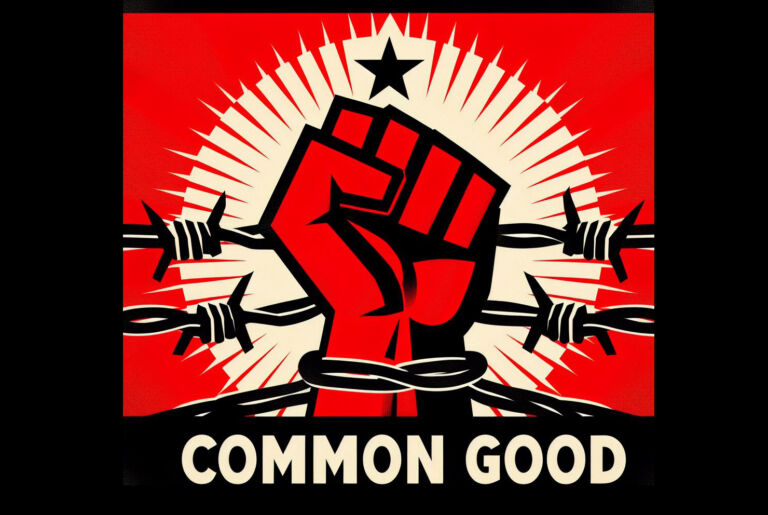- There is no such thing as a “common good” in a society of individuals
- Appeals to the common good are typically a veil for taking more of your liberty
- Tyranny of the majority is equally unjust as the despotism of a king
One man tyrannizing the whole society is no less unjust than the many tyrannizing the few under the guise of “the common good.”
Moreover, the concept of a common good is a mere chimera, a hoped-for concept that is nothing but a myth.
As the early 20th-century political philosopher Isabel Paterson wrote in her most popular book, “The God of the Machine,”
There is no collective good. Strictly speaking, there is not even any common good. There are in the natural order conditions and materials through which the individual, by virtue of his receptive and creative faculties and volition, is capable of experiencing good.
A “good,” as Paterson described, can only be experienced by the individual.
“Let it be asked, is not sunlight a common good?” she continued. “No; persons do not enjoy the benefit by community, but singly. A blind man cannot see by community.”
Furthermore, because each individual is unique, the same stimuli, phenomenon, or material good can be experienced very differently by different people. “The same degree of sunshine may induce sunstroke in one person while another derives benefit from it,” Paterson explained. Therefore, “it is impossible to disguise the fact that good accrues only to individuals.”
And who gets to define what the “common good” is? The usual response is: “the majority.”
But this presents us with a conundrum, in which the only acceptable definition of what is “good” is just a numbers game. As Paterson wrote, “if ‘good’ is quantitative and makes up a sum by majority, there can be no judge of what is good except the majority.” Now the problem becomes clear. If majority approval is considered the measuring stick for right and wrong, then slavery would have been considered “right” because historically a majority considered it so.
Worse still, in reality the “common good” is typically determined not by a majority within society but by the most powerful members of the ruling class and is used as a veil for centralizing power.
In reality the “common good” is typically determined not by a majority within society but by the most powerful members of the ruling class and is used as a veil for centralizing power.
As such, this veil encourages a shift from individual responsibility to outsourcing duties to an amorphous and undefinable collective. “Always collectivism denounces natural affections and relations and suggests shifting personal obligations onto ‘society.’ It promises easy divorce, state support of children, the pleasures of promiscuity.” But, as Paterson warned, absolving individuals of their responsibilities inevitably empowers those to whom said responsibilities have shifted, and such empowerment “ends in slavery and violation of personality.”
But shouldn’t society be organized according to the principle of the “greatest good to the greatest number,” as philosophers such as Jeremy Bentham advanced?
“’The greatest good of the greatest number’ is a vicious phrase,” Paterson insists. Organizing society along this principle “would justify abominable tortures of a minority.” The ultimate minority is the individual. To believe in minority rights requires the rejection of the tyranny of the “common good.”
The ultimate minority is the individual. To believe in minority rights requires the rejection of the tyranny of the “common good.”
A free society demands not just freedom from the tyranny of an individual king, but also from violations of individual rights under the guise of the common good.
“It is falsely assumed that when the claim of the few to command the many is refuted, the converse claim of the many to command the individual is proved,” Paterson explained. “But in reason, if one man has no right to command all other men – the expedient of despotism – neither has he any right to command even one other man; nor yet have ten men, or a million, the right to command even one other man.” Progressive policies are frequently sold as benefitting “the common good.” But no such good exists. Don’t be lulled into submission by such pleas, because more often than not appeals to the common good are merely a trojan horse for taking more of your liberty.


